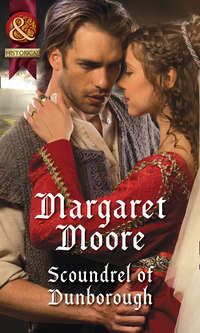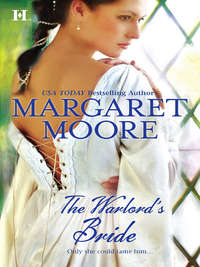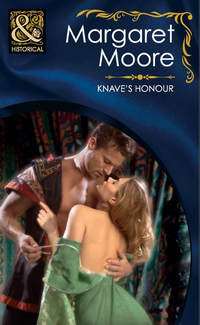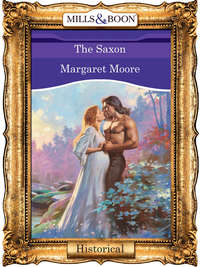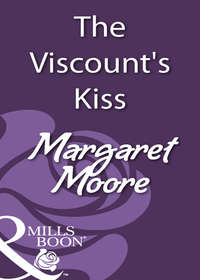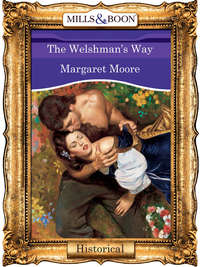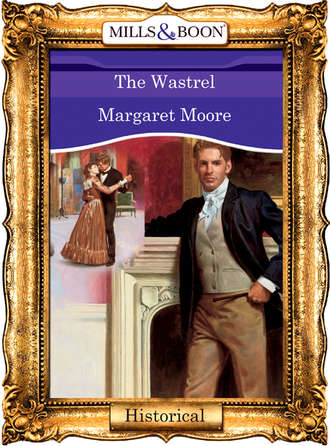
Полная версия
The Wastrel

“You expect me to behave better than you, Miss Wells?” About the Author Title Page About the Author Dedication Chapter One Chapter Two Chapter Three Chapter Four Chapter Five Chapter Six Chapter Seven Chapter Eight Chapter Nine Chapter Ten Chapter Eleven Chapter Twelve Chapter Thirteen Chapter Fourteen Chapter Fifteen Chapter Sixteen Chapter Seventeen Chapter Eighteen Chapter Nineteen Chapter Twenty Chapter Twenty-One Chapter Twenty-Two Chapter Twenty-Three Chapter Twenty-Four Chapter Twenty-Five Author Note Copyright
“You expect me to behave better than you, Miss Wells?”
Paris asked softly, a wry smile playing about his lips.
“Yes, I do,” Clara answered, trying to sound determined, all her effort threatening to be undone by the pleasure his touch sent thrilling through her.
“You present me with an interesting dilemma. Most people believe me to be the epitome of wasted profligacy, yet you seem to think me to be an honorable nobleman. I wonder why, and which you would truly prefer?”
“I expect you to be honorable all the time,” she said, her pulse throbbing in her ears, her breathing rushed and shallow. She felt like a moth trapped in the flame of his eyes. Suddenly, he blew out her candle, trapping her in the darkness.
“That would be your mistake,” he murmured, and she felt his arms go around her and draw her to him....
Dear Reader,
The Wastrel, by Margaret Moore, introduces a new series of Victorian romance novels from this award-winning author, featuring a trio of “most unsuitable” heroes that she has aptly named MOST UNSUITABLE.... The Wastrel is the magical story of a disowned heiress and a devil-may-care bachelor who learn about love with the help of her colorful relatives. Don’t miss it.
Longtime Harlequin Historicals author DeLoras Scott is back this month with The Devil’s Kiss, a Western romantic comedy about two misfits who discover love, despite Indians, outlaws and themselves. And with her is talented newcomer Tori Phillips, whose new medieval novel Silent Knight, is the tale of a would-be monk and a French noblewoman who fall in love on a delightful journey across medieval England.
A Western from Rae Muir, another 1996 March Madness author, The Trail to Temptation, about a star-crossed couple who fight their attraction on a trail drive from Texas to Montana, rounds out this month’s selection.
Whatever your taste in reading, we hope Harlequin Historicals will keep you coming back for more. Please keep a lookout for all four titles, available wherever books are sold.
Sincerely,
Tracy Farrell
Senior Editor
Please address questions and book requests to:
Harlequin Reader Service
U.S.: 3010 Walden Ave., P.O. Box 1325, Buffalo, NY 14269
Canadian: P.O. Box 609, Fort Erie, Ont. L2A 5X3
The Wastrel
Margaret Moore

www.millsandboon.co.uk
MARGARET MOORE
confesses that her first “crush” was Errol Flynn. The second was “Mr. Spock.” She thinks that it explains why her heroes tend to be either charming rogues or lean, inscrutable tough guys.
Margaret lives in Scarborough, Ontario, with her husband, two children and two cats. She used to sew and read for reasons other than research.
To my brother, David,
who teased me.
You’re forgiven.
Chapter One
England, 1862
“We should be there, should we not?” Aurora Wells demanded anxiously as she leaned toward the window on her niece’s side of the hansom cab and peered out onto the foggy streets of London.
“We haven’t been gone quite long enough, Aunt,” Clara Wells replied patiently. She surreptitiously tried to extricate the skirt of her gown from beneath her aunt’s ample hip before the expensive silk was hopelessly crushed.
Aunt Aurora’s turban of cloth of gold perched on her henna-dyed hair tilted over one pale blue eye and threatened to tumble into Clara’s lap. “It cannot be this far to Lord Pimblett’s, surely,” she insisted, this time addressing her husband, “not even in such fog. I do believe the cabbie intends to cheat us!”
“‘Had we but world enough, and time,”’ Uncle Byron quoted absently from his place on the opposite seat, his gaze fastened on the water-stained ceiling of the cab.
Despite his distracted manner, he was, Clara noted approvingly, dressed in very proper evening clothes, unlike Aunt Aurora. With his beatific expression and shoulder-length white hair, Uncle Byron looked kind, and even quite wise. Kind he certainly was, and wise he might have been, had his mother not made the fatal error of naming him Byron, for her son had come to believe that with such a name he must be a poet.
Her aunt, on the other hand, wore what might have been fashionable among the artistic set fifty years ago. Her gown was a Regency style, with the waistline beneath her substantial bosom and made of several layers of flowing white muslin, which was at least inexpensive, if not flattering. The style was intended to look Grecian. Over this, she wore a flowing stole of gold-colored taffeta that matched her usual exotic headdress.
Aunt Aurora blessedly shifted and Clara’s dress was momentarily out of danger.
The gown had cost far more than Clara had been willing to pay. Unfortunately, her aunt had been embarrassingly insistent. After all, she had exclaimed several times, regardless of the other customers in the dressmaker’s shop, Clara should dress as befitted her station. She was a duke’s granddaughter, even if her mother had been disowned by the old reprobate, and this was to be her introduction into London society. It was only by using her knowledge of her aunt’s mental processes that Clara had managed to avoid a garish gown of bright peacock blue or deep purple and a headdress that resembled an overgrown bouquet. Clara had convinced her aunt that she should appear demure, almost nunlike, in case word of her appearance should get back to her grandfather. Let there be nothing — nothing — about Clara’s clothes or demeanor that anyone could fault. Fortunately, Aunt Aurora had agreed, so Clara had no cause to be concerned about her garments — provided they could escape being squashed.
“Perhaps Lord Mulholland will be there, too,” Aunt Aurora said excitedly. “Wouldn’t that be wonderful—the handsomest man in England, or so they say! What a triumph it would be to do his portrait!”
“I daresay he already has several, if he is the conceited wastrel people say he is,” Clara replied. “He’s probably a vain coxcomb without a brain inside his handsome head,” she concluded, for she had indeed heard of the wealthy nobleman whose first name, Paris, seemed to have been chosen with predestination. Paris of Troy was the legendary seducer of Helen of Sparta, an act which caused the Trojan War.
No one possessed of such a combination of looks, wealth and title would pass unremarked in London. Unfortunately, Clara could easily imagine how such a man would respond to her aunt.
“I am absolutely certain the cabbie has gone out of his way,” Aunt Aurora declared again, straining to see outside. “Is that not Rotten Row? We should not be in Hyde Park! I feel sure he is going to deceive us!”
“No, Aunt,” Clara said calmly. “He is going the right route.”
She kept a bemused smile from her face, for even if the cabbie was trying to cheat them, Aunt Aurora would never confront the man. It would be Clara’s responsibility to pay the cabbie, just as she paid all the household bills for her guardians. She had done so from the time she had come to live with them after her parents’ deaths when she was thirteen. Clara realized then that Aunt Aurora and Uncle Byron had minds above the daily practicalities, or so they honestly believed.
For her part, Clara was in no great hurry to get to the London mansion of Lord and Lady Pimblett, for the distance from their lodgings in Bloomsbury to this exclusive part of the city was much farther socially than it was geographically.
She wasn’t even sure why or how they had been invited to this ball. She had been lingering over one of the mummies in the British Museum when she realized that her aunt had approached an extremely well-dressed, extremely poised older woman and engaged her in conversation.
Clara had immediately suspected the worst: that her aunt was asking if the lady wished to have her portrait painted.
No matter how many times her aunt approached complete strangers with the object of obtaining a commission, Clara never got used to it. This summer, her aunt had been worse than usual, and Clara knew it was all her fault. If she had not been over the age to be “out,” her aunt would have been much less persistent. Clara sighed as she wished that she didn’t have to grow up at all, if this...this solicitation were to be part of the price.
After the woman had moved on, her aunt had revealed, with her usual unbridled enthusiasm, that they were invited to this ball.
“Just think of it!” Aunt Aurora declared, returning Clara’s thoughts to the present as she clasped together her plump hands bejeweled by rings of paste stones that she thought quite lovely. “An invitation to a social evening with Lord and Lady Pimblett! What a delight! What a pleasure! I knew it was no mistake to speak with her in the museum! Dear Lady Pimblett! What a form! What a figure!”
“What a corset,” Clara remarked with a good-natured smile. “She swooned when she tried to catch her husband up at the museum. I suppose she spends most of the day on a sofa and considers herself sickly.”
“Clara!” Aunt Aurora admonished, tapping Clara on the arm with her fan that was decorated with a hand-painted scene of half-naked nymphs and dryads that Clara was certain was going to cause some scandalized whispers at a Mayfair mansion. “She is a woman of great position, and we are deeply honored to be invited to her home. I must ask you to remember that.”
Clara flushed and nodded, for it was not often that kindhearted Aunt Aurora rebuked her. She would simply have to be calm and patient, and try not to let Aunt Aurora’s manner upset her, even though she knew exactly what was going to happen. Her aunt would wander about the ball asking anybody who glanced her way if they would care to have their portrait done.
Clara wondered for what seemed the thousandth time why she had let her aunt talk her into accompanying them to this vast house surely full of dull, uninteresting people who would snub her. Or worse, look at her as if she led some kind of vaguely dishonest life not much removed from those unfortunate women in the streets.
Aunt Aurora, however, seemed to neither fear nor notice other people’s reactions, like that of the cabbie, who had stared with his mouth open as they approached his vehicle.
Aunt Aurora frowned. “Perhaps she needs such an undergarment. She may have a weak back, and not every woman is naturally blessed with a figure like yours, Clara.”
“Nor has every woman such an amiable and forward-thinking aunt to ban the detestable undergarment from her home,” Clara acknowledged.
“Hear, hear!” Uncle Byron cried, leaning forward suddenly and grasping his wife’s hand while gazing at her adoringly. “My Amazon! My warrior queen, has ever been, so far seen....” Uncle Byron’s brow wrinkled, his green eyes became serious and he began to rub his chin as his attention returned to the ceiling. “Now what?” he murmured. “Queen, been, seen, tangerine...?”
“The muse speaks!” Aunt Aurora whispered quite unnecessarily as she put her finger on her lips, obviously unable to remain silent despite the muse’s unseen presence.
Clara turned to look out the window and hide her smile. When the muse spoke, she had best be quiet. It was the fastest way to achieve the end to one of Uncle Byron’s poetic reveries.
A row of particularly fine town houses alight with blazing windows came into view. The tall white buildings seemed to glow in the moonlight, as if even the fog could be held at bay if one was rich enough.
“I believe we have arrived,” Clara said softly, suddenly terrified.
She knew nothing of these people and little of the aristocratic world they inhabited, for her mother had been disowned before Clara was born. What did they know of hers—of watching how every tuppence was spent, of the small, stuffy flat they lived in, of the noise of the neighbors and the street? What would they make of her, a woman of no great beauty whose mother had had the effrontery and bad taste to fall in love with her dancing master, and worse manners to marry the fellow? How could her guardians have accepted this invitation? How could they be so willfully blind?
She looked at them again, her uncle thoughtfully surveying the town house, her aunt breathless with anticipation—and was ashamed of herself. Why shouldn’t they be there? Aunt Aurora was the kindest, sweetest person Clara knew. Her uncle was an intelligent, well-read man who could have been a success in almost any field, if his mother had named him anything other than Byron. She was a lady’s daughter, of higher rank than even Lord and Lady Pimblett. She would remember these things, and hold her head high.
After they disembarked, Clara reached into her reticule and brought out the exact amount necessary to pay the cabbie, leaving a similar amount for the journey home. The cabbie squinted at the coins in his palm, sniffed scornfully, then clicked his tongue to alert his horse and drove off.
“That poor man does not have the artistic sentiment, I fear,” Aunt Aurora remarked sadly, as if the man suffered a grave deficiency.
Then, blissfully unaware that Clara was not enthused by this social engagement, Aunt Aurora and Uncle Byron proceeded toward the steps leading into the mansion while Clara followed slowly behind.
As they reached the bottom step, a private coach adorned with a family crest stopped where the cab had been moments before. Clara glanced back as the door opened and a top hat appeared, followed quickly by a broad-shouldered, well-dressed individual wearing an opera cape. The dark fabric swirled when the man leapt lightly onto the walk, revealing a brilliant scarlet lining.
As if this man needed anything extra to draw attention to himself, Clara thought, looking at his classically handsome profile in the lamplight.
Then she realized, without having to be told, that she must be looking at the handsomest man in England—Lord Paris Mulholland. There could not be two men in London with such a form and face.
He reached into his pocket and flipped a coin toward the driver. “Three hours, Jones,” he announced in a languid, deep voice that bespoke wealth and education, and that also held a tinge of amused good humor in it. “Mind, I shall be most aggrieved if you are late, and I won’t listen to any excuses! Then we’ll be off to White’s, for I’ve laid on a bet with poor, dim Boffington that I can make her ladyship swoon at least five times before I meet him there. Too easy, really. I should have made it ten.”
The lighthearted command in the man’s voice quite captivated Clara and she wished she had a part of that bet, which would surely be won, so much so that when Lord Mulholland suddenly turned and looked at her, she gasped with guilt. She attempted to mask her shame and surprise by effecting a cough—and wound up sounding as though she were in immediate danger of choking to death.
Aunt Aurora and Uncle Byron, who had also halted when the stranger arrived, hurried to her. “Are you quite all right, my dear?” Aunt Aurora asked.
Clara nodded, took a step toward the town house and unfortunately tripped on the hem of her lovely new gown. She hastily disentangled herself, but before she could move farther away, the stranger was beside her.
“Somebody expiring on the very steps?” he inquired politely, reaching out to take her arm in a grip that was surprising strong.
Seen so close, Clara realized he was extremely attractive, with eyes of such brilliant piercing blue beneath finely arched blond brows that she felt some kind of pure, invigorating energy blaze forth from them. He was smiling, and his chin had the merest hint of a dimple beneath full, sensual lips.
She had expected a man with his reputation to be a vain dandy, but she couldn’t have been more wrong, for Paris Mulholland exuded a masculinity that needed no embellishment.
If there was any mercy under heaven, the ground would open up and swallow her.
“I tripped.” Her embarrassment caused her to put on as severe an expression as she could muster as she pulled away from Lord Mulholland. “I am fine, thank you.”
Clara could look very severe, yet that only seemed to amuse the man, who smiled most charmingly and ran his gaze over the three of them.
It was happening already, Clara thought with dismay. Impertinent appraisal. She knew what he would think when he discovered that her aunt was an artist and her uncle a poet—that she, living with such people, must be of lax morals.
Clara drew herself up and directed a steely gaze at him, remembering that she was most properly and demurely dressed, so there could be no good reason for his long assessment of her.
“Greetings, fellow bacchanal! Are you come to join the revels?” Uncle Byron asked by way of salutation.
To speak so to a stranger, and in Mayfair, too! Would Uncle Byron never learn to observe the social niceties?
The nobleman lifted his black silk top hat and bowed gracefully, and she noted his sleek, blond hair and long, slender fingers. “Allow me to present myself. I am Lord Paris Mulholland.”
Aunt Aurora gave Clara what could only be described as an impressed and triumphant look, and Uncle Byron would have swept his hat from his head if he had worn one. Instead, he made a very low and flourishing bow such as Lord Mulholland might recently have witnessed on a theater stage. “Byron Bromblehampton Wells, sir,” he announced. “My wife, Aurora, and our niece, Miss Clara Covington Wells. Charmed to make your acquaintance, my lord!”
“I’ve been hoping to meet you, my lord,” Aunt Aurora gushed with equal enthusiasm. “I have heard it said you are a handsome man worthy of your legendary name, and it is most gratifying to see that your reputation is quite well-founded.”
“Thank you, dear lady,” the sleek and undoubtedly seductive Lord Mulholland replied as he took Aunt Aurora’s plump hand and gallantly pressed a kiss upon it. “But I am named for the city, not the man.”
He took Clara’s hand in his. Even though they both wore gloves, his touch was astoundingly delightful—firm yet gentle, too. “Your servant, Miss Wells,” he said, kissing the back of her hand lightly. He glanced up at her face with a roguish grin.
It occurred to Clara that it didn’t much matter how Lord Mulholland came by his name, for it was all too fitting.
“Have you ever had your portrait done?” Aunt Aurora asked eagerly.
At that moment, it would have been a blessed relief if there had been a tornado, or an earthquake or any other cataclysm—anything other than to have to stand there and listen while Aunt Aurora said, “I’m an artist, my lord, and nothing would give me greater pleasure than to paint you.”
“Indeed?” Lord Mulholland replied. “That is a most intriguing proposition.” He faced Clara. “And does this delightful young creature also paint?”
“No, my lord. This creature does not,” she answered firmly, moving away and telling herself that his roguish smile was probably nothing more than a habit with him. No doubt he considered any and every woman an object for an attempted seduction.
“A pity,” he replied. “May I escort you inside?”
No! Clara wanted to shout. What would people think if they entered here together? Think! They would believe they knew. A female stranger of such dubious social heritage accompanying a man like Lord Paris Mulholland must be “under his protection.” What little reputation she might have hoped to maintain with a demure manner and extremely plain and modest gown would fly away like a frightened sparrow. She should have insisted that she remain at home tonight!
He held out his arm, but toward Aunt Aurora, not her. It was the most impeccably correct thing to do, and Clara thought she must have been temporarily deranged to imagine that he would want to escort her.
“How perfectly delightful,” Aunt Aurora said as she stepped ahead to take his proffered arm. “Now, about your portrait....”
“I shall have to give it some thought,” Lord Mulholland said, and Clara could hear the laughter in his voice.
A man of his wealth could have any painter from the Royal Academy. He would never want to sit for Aunt Aurora, so why did he have to lead her on? Did he enjoy making sport of others or placing them in embarrassing positions? Probably. It would be in keeping with what she had heard of him from some of her aunt’s friends: that Paris Mulholland’s sole goal in life was to enjoy himself.
If he did decide to have Aunt Aurora paint his portrait—and Clara had to admit that they needed the money—and if he did come to her aunt’s lodgings to sit, she would ensure that she was out of the house. Or perhaps, finances notwithstanding, it would be better to discourage any talk of a portrait entirely. Although Clara loved her aunt dearly, there was no escaping the fact that every portrait her aunt painted bore a marked resemblance to the Duke of Wellington. She could almost hear the cutting criticism Lord Mulholland would make of the picture, and the way he would regale his equally ne’er-do-well friends with tales of her relatives’ eccentricities.
“A fine fellow! ” Uncle Byron whispered in her ear as they followed him into the well-appointed house.
Clara didn’t answer. Instead, she concentrated on the large, ornately decorated foyer, which was nearly the size of their entire flat. The floor was Italian marble, and the wallpaper was of intricate design, obviously costly. “So noble, so charming,” Uncle Byron continued. “Worthy of his name, wouldn’t you say? I can believe a man like that could seduce the most beautiful woman in the world.”
“And I can believe he wouldn’t care that such a selfish act would start a war,” Clara said, reminding her uncle that the name Paris was not one a man should be particularly proud of.
Lord Mulholland, having handed his flamboyant cape and hat to a footman, suddenly whirled around to face her. There was a smile on his good-looking face but also something that looked suspiciously like criticism in his brilliantly blue eyes. “I believe I mentioned that I am not named for the man who seduced Helen of Troy. My mother, in a flight of fancy, named me for the City of Light, where I was apparently conceived.
“Now, if you will all excuse me, I see an old friend inside,” he concluded coldly. He made a slight, polite bow before striding away.
Clara flushed again, and told herself she had been a fool to speak her thoughts out loud. She had been rude, too. Of all people, she should know how it felt to be judged by a name or an occupation.
“We must speak later, my lord, about the portrait!” Aunt Aurora called after him, waving gaily. “My dear, just think!” she exclaimed rapturously, clasping her plump hands together and ignoring the footman who waited to take their wraps. “Lord Paris Mulholland! If he agrees to sit for me, I shall be quite famous!”
Clara kept quiet, but she would rather walk barefoot to Dover in the middle of winter than have a man like Paris Mulholland in the studio.
She told herself that her reservations had absolutely nothing to do with his provocative manner and handsome face, or that the evening dress of pristine white shirt, white cravat and black tails seemed to have been designed with him specifically in mind. After all, her guardians’ bohemian friends had been trying to seduce her for years, with no success. She could fend off Lord Mulholland, too.


